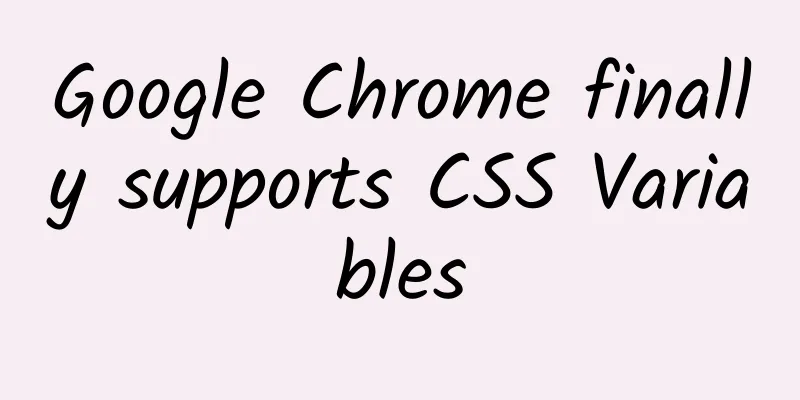Google Chrome finally supports CSS Variables

|
This article is not about "news", because the W3C has already started working on CSS variables (also known as 'custom properties'). As part of the informal CSS4 standard, Mozilla has supported it as early as Firefox version 29. As for Google, it dates back to early November, when Addy Osmani, one of the company's main developers, announced the first introduction of support for CSS variables in Chrome Canary. Mozilla recently added support for CSS variables in Firefox 29, and developers can deploy compile-to-CSS languages that have been used for years, such as Sass, LESS, or Stylus, in their CSS code. Recently, many people have started to migrate to PostCSS, which provides more dynamic expressions when dealing with CSS syntax. If the W3C wants to catch up, it should first look at what the CSS subset languages can do now, not what you could do with them a few years ago (in this case support for mixins, partials, and more complex operations). There aren’t many developers writing actual CSS code these days, although there is still a great need for it. W3C is indeed 6-7 years behind on CSS custom properties, but it can still make CSS more powerful. |
<<: Facebook launches new video embed API and Apple Watch/TV SDK
>>: What exactly is the recently popular VoLTE technology?
Recommend
After selling technology licenses and then selling buildings, is it possible for AMD to turn around?
After the Chinese state-owned company Tianjin Hai...
App promotion, if you can do these 4 things, you will be an expert!
Recently, people often ask me about promotion. So...
Three steps to teach you how to improve personal and team competitiveness!
In the past, human resources, especially human re...
Has Pinduoduo reached a growth turning point?
For a long period of time, the e-commerce industr...
Feeling down? Maybe your stomach is asking for help!
Recently, the topic of "Is the stomach reall...
Cry first! Staying up late not only hurts your body, but also makes you stupid, ugly and fat
Whenever it’s late at night, there are always som...
Concrete operations: basic operation skills and common tools!
I often hear Internet professionals say: "Pro...
Revealed! Why do some people's ashes appear colorful after cremation?
Follow "Body Code Decoding Bureau" (pub...
After the iPhone price reduction across the board, how can I get a refund for the price difference if I bought it at a higher price?
On the evening of March 31, due to a sharp adjust...
No idea for home improvement marketing? These two marketing methods will help you win by surprise
In the marketing process, what makes home improve...
A "naughty kid" played with fire and burned a car... Fire safety education should not be underestimated!
Fire and theft prevention Can't prevent "...
NetEase Cloud Music v6.5.2 Ad-free Modified Version_Resource Sharing Software, Office Software
Software Information Name: NetEase Cloud Music Pa...
What is the future of Silicon Valley people after they turn 35? Are there great opportunities for entrepreneurship?
[[153556]] Similar to Silicon Valley, we also hav...
LG's poor performance in China may make it the next brand to fall
The industry that is most deeply touched by the p...









